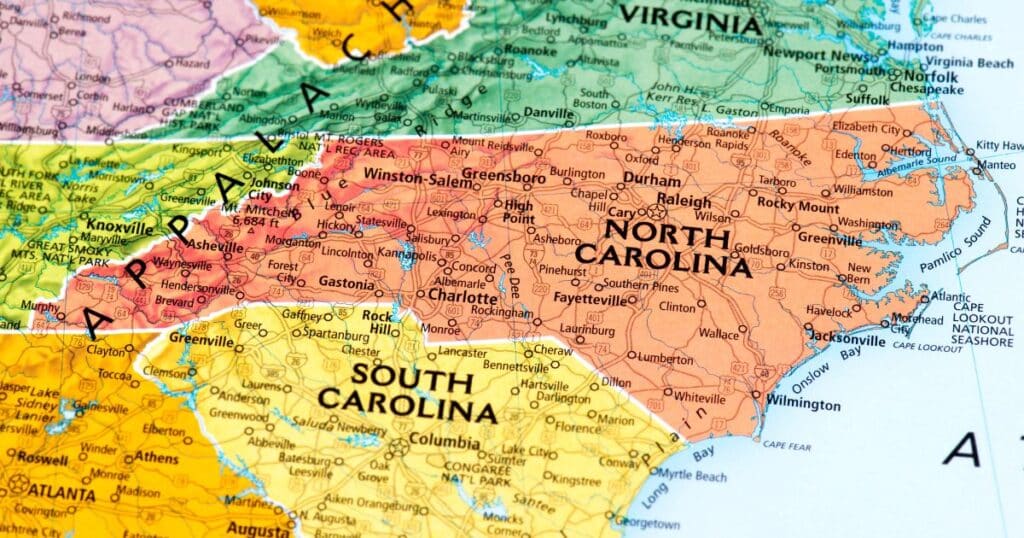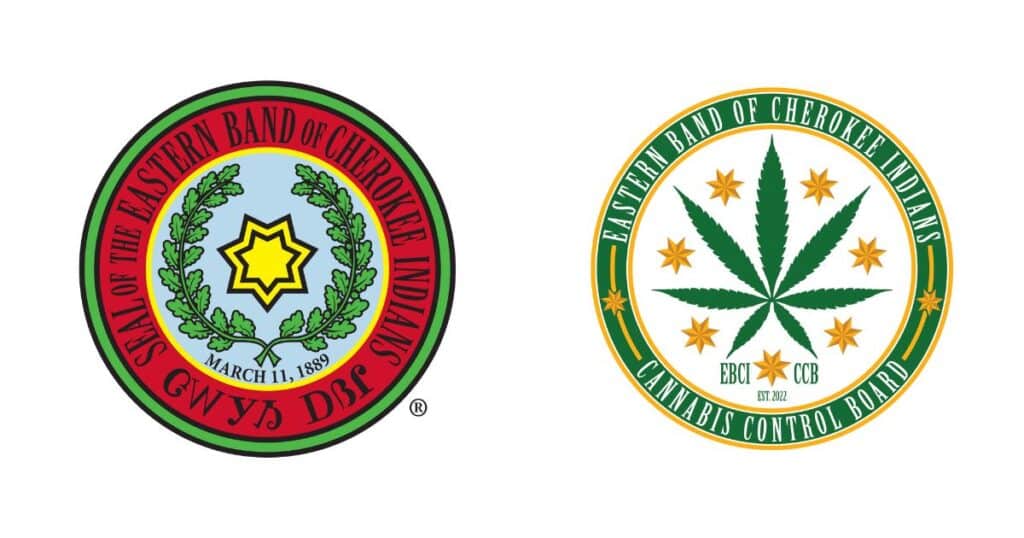The Eastern Band of Cherokee Indians (EBCI) made waves in North Carolina when they announced plans to open the state’s first cannabis superstore on tribal land. The Cherokee cannabis endeavor marks a significant milestone not just for the tribe but for the emerging cannabis industry in a traditionally conservative state, which notably has no legal framework for medical or recreational cannabis outside of tribal territory.
In a move that stirred both anticipation and uncertainty, tribal officials revealed purchasing regulations for the new medical retail, clarifying who exactly in a state will have access to their cannabis products.

Dispensary Sales for Medical Card Holders
In a press release, the Great Smoky Cannabis Company clarified that sales at their new dispensary will be limited to individuals over 21 years old who hold a medical cannabis patient card.
The announcement also noted that the tribe will extend reciprocity to individuals with out-of-state medical cards or other tribal medical cannabis cards.
“Sales are limited to those over 21 who hold a medical cannabis patient card. The medical
cannabis patient cards are issued by the EBCI Cannabis Control Board (CCB). We will also
extend reciprocity to individuals with out-of-state medical cards, or other tribal medical cannabis cards.”
While the exclusivity of the EBCI’s medical cannabis program initially prioritizes tribal members with qualifying medical conditions, it opens an intriguing possibility for all North Carolina residents. According to tribal officials, residents across the state possess the opportunity to apply for a medical cannabis patient card issued by the EBCI Cannabis Control Board (CCB).
Qualla Enterprises officials have signaled their openness to eventually extending access to their cannabis dispensary to the general public. However, in the press release Monday, they underscored their decision to initially cater exclusively to individuals holding medical cannabis patient cards.
The grand opening of the Great Smoky Cannabis Company is fittingly scheduled for April 20th or 4/20. This celebration is not just a nod to cannabis enthusiasts but also a showcase of the tribe’s commitment to providing safe, regulated access to cannabis products. The dispensary is set to offer an variety of tested products, including flower, vape products, edibles, topicals, and more.
Vote Leading to Progressive Change
The decision to set up a cannabis dispensary on tribal land came after a significant vote in September, in which adult use of cannabis on tribal territory received a big thumbs-up. This step was deeply rooted in progressive policy-making, showing a touch of democracy within the EBCI community. Getting to this decision involved a lot of community talks and open governance, building a trust bond between leaders and the community.
The uniqueness of this move isn’t just about adult cannabis use approval but also about the solid regulatory system it’s aiming for. The formation of the Eastern Band of Cherokee Indians Cannabis Control Board (CCB) highlights the tribe’s dedication to strict oversight, ensuring the safety and quality of cannabis products sold on tribal land. This regulatory approach could be a guide for other communities diving into the world of legalized marijuana.
The Economic, Social, and Possible Legislative Impact
Beyond the legal and regulatory framework, the Cherokee cannabis initiative carries significant implications for the economic and social fabric of the region. The cannabis dispensary stands to greatly impact the local and national cannabis market, potentially serving as a model for responsible and successful cannabis retail in the region.
Earlier this month, we reported that Qualla Enterprises LLC (Great Smoky Cannabis Company) had already attracted over 1,400 job applications.
The EBCI’s economic impact is substantial, with the potential to generate significant revenue. The Great Smoky Cannabis Company’s potential financial impact extends beyond initial expectations. Economic projections by Qualla Enterprises LLC suggest that the dispensary could generate nearly $206 million in gross sales revenues in its first year if limited only to medical patients.
This figure is significant, marking a substantial contribution to the local economy and setting a benchmark for the cannabis industry within tribal territories. However, this revenue could skyrocket to an estimated $385 million if the product is made available to all adult users.

It will be interesting to observe whether the establishment of the Great Smoky Cannabis Company by the Cherokee Tribe will incite any changes to cannabis legislation or attitudes in North Carolina. The state, known for its conservative stance on cannabis, maintains strict prohibitions against both medical and recreational cannabis outside of tribal lands.
The initiative taken by the Eastern Band of Cherokee Indians (EBCI) not only challenges the status quo but also paves the way for potential shifts in policy and public perception across North Carolina. Whether this bold move will prompt a reassessment of cannabis laws at the state level remains to be seen, but it undeniably adds a significant voice to the ongoing conversation about cannabis legalization and regulation in conservative regions.
















